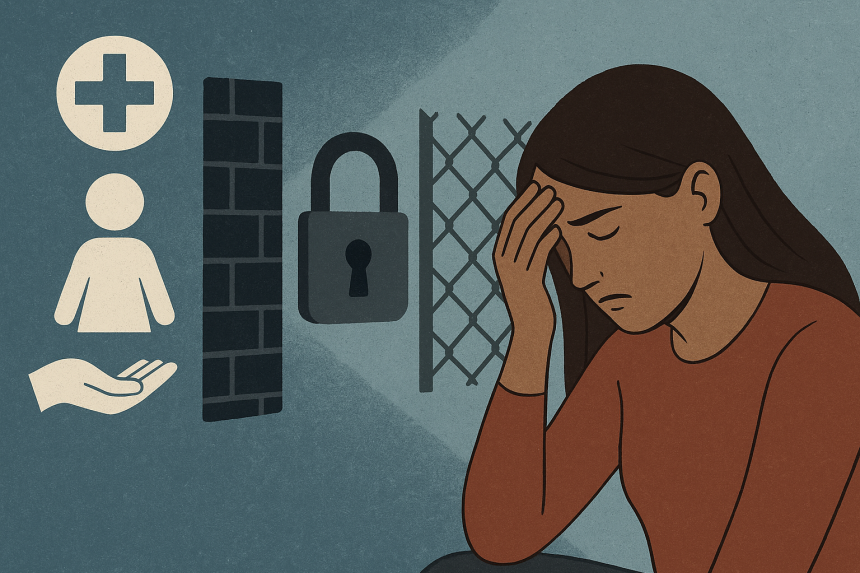For many women, the moment they realize they need help isn’t marked by a dramatic collapse. It’s quieter, a private admission whispered at the kitchen sink or while scrolling on a phone late at night. The decision to seek treatment for addiction takes courage, yet for countless women, that courage still runs into walls. Between financial worries, caretaking responsibilities, and the lingering social stigma around female addiction, recovery can feel like a luxury few can afford to reach for.
The Weight of Care That Keeps Women From Care
Women are often the caregivers in every sense, whether they’re raising children, tending to aging parents, or keeping households afloat. That sense of responsibility doesn’t pause for self-care. It’s why many women stay stuck, convincing themselves that they can “manage” their drinking or prescription use on their own. There’s a guilt that creeps in — not just over the habit itself, but over the thought of leaving others to fend for themselves while they focus on healing.
Even when family and friends want to help, the logistics can be daunting. Childcare, work, transportation, and cost become tangled obstacles that make treatment seem impossible. For some women, just picking up the phone to ask about a program can feel like climbing a mountain. The irony is that the women who give so much of themselves to others are often the least likely to give themselves the time and care they deserve.
When Treatment Feels Out of Reach
Even when women know they need help, getting it isn’t simple. Programs are out there, but finding one that actually fits their lives can feel like searching for a safe harbor during a storm. Between the cost, the logistics, and the emotional weight of walking away from responsibilities, it’s no wonder so many women quietly postpone getting help.
Many traditional treatment centers weren’t designed with women’s needs in mind. The schedules, the structure, even the emotional tone can feel disconnected from what women actually go through. That’s why more women are seeking drug rehab for women only — spaces that understand what it means to juggle motherhood, work, trauma, and social expectations all at once. These programs don’t just treat addiction, they treat the tangled web of guilt, exhaustion, and perfectionism that often fuels it.
Still, stigma lingers. Too many women feel that admitting they need structured support is a sign of weakness, when in truth, it’s the strongest move they’ll ever make. The reality is that recovery built around women’s lives and emotional experiences works better because it sees the person behind the struggle. It honors the balance so many women are trying to hold — and finally offers a place where they don’t have to hold it alone.
The Fear of Judgment and the Pressure to Be “Fine”
Social pressure is another wall. Women are taught early to appear composed, to hold it together no matter what. Admitting they’re struggling feels like an admission of failure, especially in a world that still judges mothers more harshly than men for the same mistakes. Many women internalize that judgment before anyone else ever speaks it, silencing themselves before they can even ask for help.
There’s also the fear of being misunderstood by providers. Women often say they don’t want to be treated like a statistic or another “case.” They want a space where they can unpack trauma, shame, and pain without having to defend their choices or their motherhood. The need for compassion-based care isn’t sentimental — it’s essential for recovery to take root.
Where Comfort Meets Care: Why Some Turn to Luxury Rehab
It’s no surprise that some women look beyond traditional treatment models toward luxury rehab programs. These centers are often designed with privacy, comfort, and emotional support in mind, offering trauma-informed therapy, nutrition counseling, and holistic recovery options that feel less clinical and more human. For women who’ve spent years in survival mode, environments that prioritize peace and dignity can be transformative.
Of course, luxury care comes with a steep cost. But what draws women to it isn’t extravagance — it’s the promise of being treated like a person, not a problem. The idea that healing doesn’t have to feel institutional resonates deeply with women who’ve been overworked, overlooked, and told to “be strong” for too long. The comfort is not superficial; it’s symbolic. It reminds women that they’re worthy of gentleness and rest, even while doing the hardest work of their lives.
The Turning Point That Doesn’t Always Look Like One
Recovery doesn’t always begin in a treatment center. Sometimes it starts with honesty — with saying, “I can’t do this alone.” Women who’ve spent years holding everyone else together often find their first act of recovery is finally letting themselves unravel. The strength that follows isn’t the kind you post about online. It’s quiet, steady, and deeply personal.
The good news is that addiction care is evolving. More organizations and treatment providers are recognizing the need for gender-responsive programs. The more these options expand, the more accessible recovery becomes. Healing should never depend on wealth, geography, or the ability to navigate a broken system. It should depend on readiness and hope.
Finding the Way Forward
Addiction recovery for women is not just about abstaining from a substance. It’s about dismantling the walls built by shame, outdated systems, and impossible expectations. When a woman finally reaches for help, she’s not just trying to survive — she’s rewriting what strength looks like.
Real progress happens when women realize that healing isn’t selfish. It’s what makes them whole, and in turn, what helps families and communities heal too. Every call made, every appointment kept, every tear shed in therapy is a sign of courage that deserves to be honored, not hidden. The barriers are real, but so is the strength it takes to break them.
Lynn Martelli is an editor at Readability. She received her MFA in Creative Writing from Antioch University and has worked as an editor for over 10 years. Lynn has edited a wide variety of books, including fiction, non-fiction, memoirs, and more. In her free time, Lynn enjoys reading, writing, and spending time with her family and friends.















